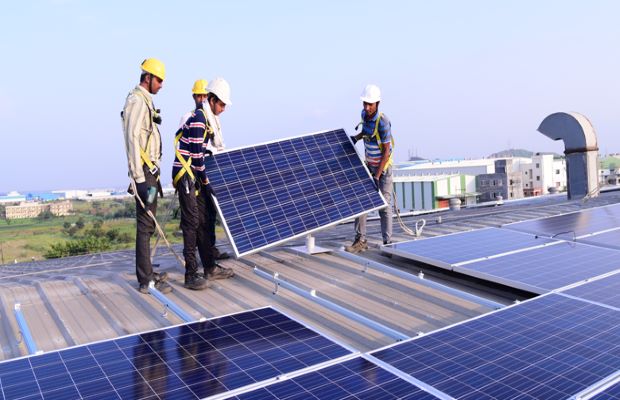How to Prepare Your Home For Solar Rooftop System
by Diksha Sharma Blogger and writerSolar rooftop systems are gaining a lot of popularity among modern-day homeowners. And there are two incredible reasons for it. First, a solar system helps reduce monthly electricity bills by up to 80% and second, it also helps one bring ecological stability.

Therefore, if you are considering buying a solar system for your home, then congratulations as you are about to save lakhs of rupees on power bills, while of course saving the planet. But there are a few things that you need to know before you book your solar system.. Here are those things:
Know your Solar Potential
Before you decide to go solar, the first and foremost thing you should do is know your solar potential. This will help you know whether the decision is going to be worth your money or not. There are many online solar rooftop calculators which will help you identify your estimated savings, estimated investment, return on investment, financing options and your contribution to the environment.
Check if your Rooftop is durable enough
Checking the durability of your rooftop is crucial as installing solar panels on a rooftop adds additional pressure on them. A weak rooftop might not be able to bear the pressure and might end up getting damaged. Therefore, check if your home roof can support the weight of the solar panels or not.
Check and get rid of Shadow elements
If your roof is covered in the shade most of the day, then getting solar panels installed on it might not be the benefitting idea. Solar panels work best when exposed to the sun. Any shadow on them will affect the efficiency of the panels and you might not get the desired generation. Therefore, ensure that your rooftop where you are planning to install the panels are shadow-free.
Check your Grid Connectivity
There are three types of solar systems, namely, on-grid, off-grid and hybrid, and you need to choose one from among these. On-Grid systems allow you to avail the net metering facility and work in conjugation with the state grid or the electricity supply.
Off-Grid systems are not connected to the grid, have a battery bank attached to them and are best for areas with no grid connectivity. Hybrid systems are a mix of both the technologies and allow you to avail the benefits of both on-grid and off-grid solar systems. Therefore, knowing your grid connectivity becomes crucial to choose the ideal residential rooftop solar system for your rooftop.
Keeping the above points in mind will help you make a sound solar decision. But for the transition to be smooth, it is essential that you choose the right installer. Know how to choose the best solar installer, here.
Sponsor Ads
Created on Aug 18th 2020 03:40. Viewed 321 times.



